Biophysics & Macromolecular Structures
What are Biophysics & Macromolecular Structures?
Biophysical & Macromolecular Structural research views biological problems through the lens of physics. Biophysicists and macromolecular structural biologists work to decipher how changes to protein or nucleic acid sequence might lead to changes in their 3D architecture and therefore their function in the cell.
What is the impact of our research in Biophysics & Macromolecular Structure?
- Drug development efforts can circumvent problems with drug resistant pathogens using the Substrate Envelope Theory of Drug Resistance that was first put forth by our department. This theory states that compounds that fit into the enzymatically active substrate envelope of the protein, like a key into a lock, leave less wiggle-room for the protein to mutate and become resistant to that drug. This theory was developed through the analysis of hundreds of 3D protein structures bound to different drugs. Find out more here.
- The biophysical basis for how protein folding is coupled to biological activity is actively under investigation in our department. Some proteins only fold upon binding to their cellular substrates, providing new ways to target these proteins with novel therapeutics. Researchers in our department employ nuclear magnetic resonance spectrometry (similar to an MRI you might get at a hospital, but for much smaller macromolecules) to directly visualize how each atom in a protein changes as it binds to its cellular partners. Find out more here.
- Fundamental processes required for viral replication and infection are being elucidated by studying the physical structures of the proteins involved in these processes. Find out more here and here.
Who's studying Biophysics & Macromolecular Structure?
-
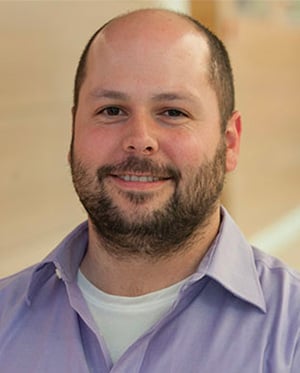
Brian Kelch , PhD
Professor of Biochemistry & Molecular BiotechnologyType: Primary
Areas of Research: Biochemical Mechanisms, Biophysics & Macromolecular Structures, Cellular Biochemistry
Research Interest: The Kelch Lab utilizes structural biology and biochemistry to reveal the workings of large macromolecular complexes, with a special focus on those involved in DNA replication/repair and virus assembly.
Research Tools: E. coli (bacteria), S. cerevisiae (yeast), T. thermophilus (bacteria), H. sapiens (human)
Broader Impact: cancer, PARD, infectious diseasehe/him/his
Office Location: LRB 923
Lab Location: LRB 970 H-G
Phone: 508-856-8322
Lab Page -
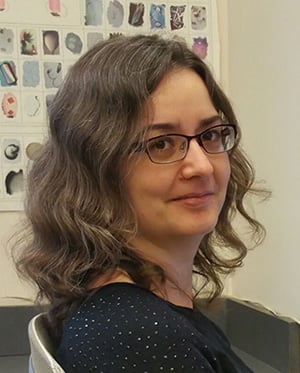
Nese Kurt Yilmaz , PhD
Associate Professor of Biochemistry & Molecular BiotechnologyType: Primary
Areas of Research: Biochemical Mechanisms, Biophysics & Macromolecular Structures, Computational Biochemistry
Research Interest: Biological function, enzyme inhibition and drug resistance.
Key Words: protein structure, biomolecular complexes, conformational dynamics, enzyme inhibition
Research Tools: viral proteases, deaminases, renalase
Broader Impact: Viral infections (HIV-1, HCV, coronaviruses, influence, dengue), cancer, type I diabetesOffice Location: LRB 919
Phone: 508-856-1867
Lab Page -
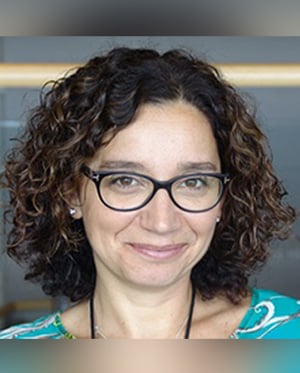
Francesca Massi , PhD
Associate Professor of Biochemistry & Molecular BiotechnologyType: Primary
Areas of Research: Biochemical Mechanisms, Biophysics & Macromolecular Structures, Computational Biochemistry
Research Interest: The Massi lab uses their expertise in NMR Spectroscopy to understand the dynamics of protein-RNA interactions.
Office Location: LRB 925
Lab Location: LRB 960 B, 970 N
Phone: 508-856-4501
Lab Page -
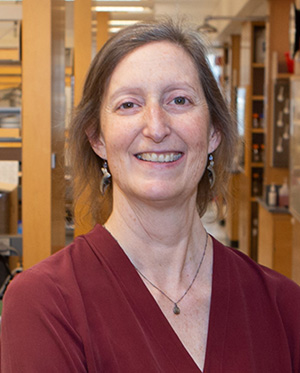
Mary Munson , PhD
Professor and Vice Chair for Diversity, Biochemistry & Molecular Biotechnology; Associate Vice Provost for Equity in Science, Office of Health Equity; co-leader of the Investigator Career Advancement Program (iCAP); Co-investigator for the American Society for Cell Biology's MOSAIC Program; Co-chair of the ASCB’s Women in Cell Biology Committee (WICB); incoming ASCB President in 2025; Faculty Advisor, UMass Chan-SACNAS student chapterType: Primary
Areas of Research: Biochemical Mechanisms, Biophysics & Macromolecular Structures, Cellular Biochemistry
Research Interest: The Munson lab studies vesicle trafficking machinery and how specificity in vesicle targeting and fusion is achieved.
Key Words: membrane trafficking, exocytosis, endocytosis, exocyst, VPS45, SNAREs, vesicle fusion, neutropenia
Research Tools: protein and membrane biochemistry, biophysics, cryoEM, yeast and mammalian cell biology, immunology, mouse models of disease
Broader Impact: immune dysfunction, cancer, neurological disordersshe/her/hers
Office Location: LRB 905
Lab Location: LRB 970 P, Q, R
Phone: 508-856-8318
Lab Page -
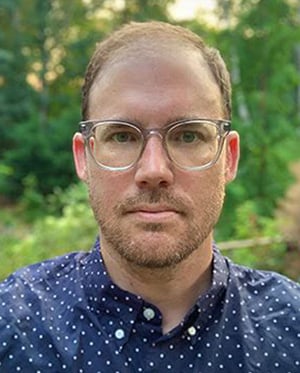
Sy Redding , PhD
Assistant Professor of Biochemistry & Molecular BiotechnologyType: Primary
Areas of Research: Biochemical Mechanisms, Biophysics & Macromolecular Structures, Gene Expression & Epigenetics
Research Interest: The Redding Lab seeks to discover general physical principles that affect how genetic information is organized and accessed.
Key Words: Chromatin organization, protein-DNA interactions, Epigenetics, single molecule biophysics, phase separation
Research Tools: single molecule techniques, TIRF microscopy, confocal microscopy.he/him/his
Office Location: LRB 926
Lab Location: LRB 960 B
Phone: 774-455-6635
Lab Page -
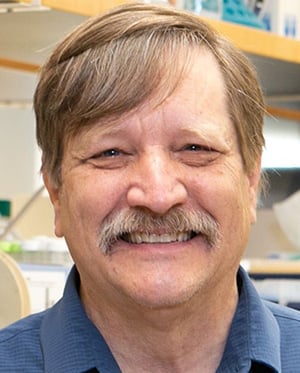
William E. Royer , PhD
Professor Emeritus of Biochemistry & Molecular BiotechnologyType: Primary
Areas of Research: Biochemical Mechanisms, Biophysics & Macromolecular Structures, Chemical Biology
Research Interest: The Royer lab uses their expertise in X-Ray Crystallography to study how the assembly of macromolecules regulates biological function.
Key Words: Structural Biology, X-ray Crystallography, Protein Assembly and regulation.
Research Tools: X-Ray Crystallography
Broader Impact: Cancerhe/him/his
Office Location: LRB 921
Lab Location: LRB 970 G, W
Phone: 508-856-6912
Lab Page -
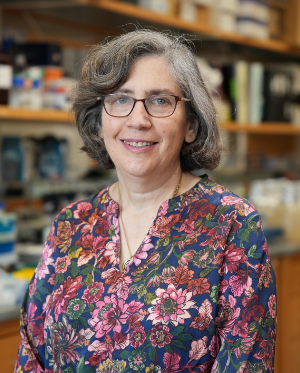
Celia Schiffer , PhD
Chair & Arthur F. and Helen P. Koskinas Professor of Biochemistry and Molecular Biotechnology, and Director of the Institute for Drug ResistanceType: Primary
Areas of Research: Biophysics & Macromolecular Structures, Chemical Biology, Computational Biochemistry
Research Interest: The Schiffer Lab studies the molecular basis for drug resistance and has developed a new paradigm for avoiding drug resistance when targeting enzymes in structure-based drug design.
Research Tools: protein crystallography, CryoEM/CryoET, molecular dynamics simulations, homology modeling, enzymatic assays and medicinal chemistry,
Broader Impact: RNA Viruses (HIV, HTLV, Influenza, Coronaviruses, Enteroviruses, Flaviviruses) and CancerOffice Location: LRB 928
Lab Location: LRB 840 D; 860 C; 960 E; 970 C, D, L, M
Phone: 508-856-8008
Lab Page -
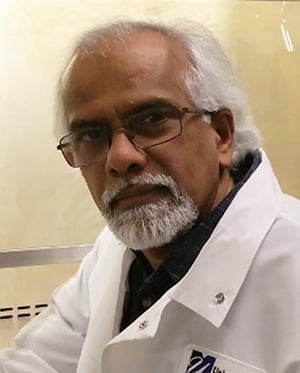
Mohan Somasundaran , PhD
Associate Professor of Biochemistry & Molecular Biotechnology; Member of the Schiffer LabType: Primary
Areas of Research: Biochemical Mechanisms, Biophysics & Macromolecular Structures, Cellular Biochemistry
Research Interest: The Somasundaran team studies how cells and viruses interact with each other to develop molecular diagnostics and new antiviral therapies.
Research Tools: cell culture, M. musculus (mouse)
Broader Impact: HIV, EBV, infectious mononucleosis, influenza, SARS-CoV1, SARS-CoV2, cancerOffice Location: LRB 960 E
Phone: 508-856-4408
Lab Page
-
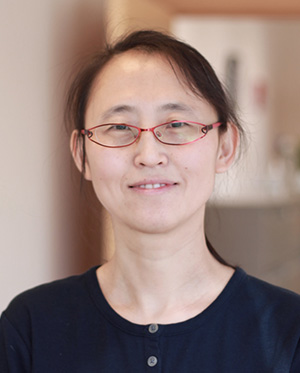
KangKang Song , PhD
Associate Professor of Biochemistry & Molecular BiotechnologyType: Primary
Areas of Research: Biophysics & Macromolecular Structures
Research Interest: Dr. Song is the manager of the Cryo-EM Core Facility.
Research Tools: Cryo-electron microscopyOffice Location: LRB 970 C
Phone: 508-856-8812
Lab Page -
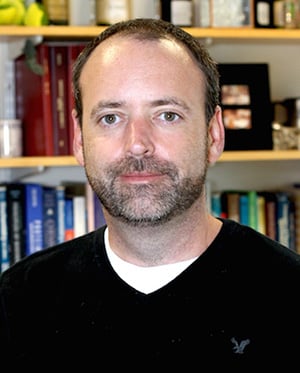
Paul Thompson , PhD
Endowed Chair in Biochemistry and Molecular Biotechnology II; Director of the Program in Chemical Biology; Professor of Biochemistry & Molecular BiotechnologyType: Primary
Areas of Research: Biochemical Mechanisms, Biophysics & Macromolecular Structures, Chemical Biology
Research Interest: The Thompson lab is a leader in the field of chemical biology and exploits these techniques to study biomedically-important enzymes and proteins including the Protein Arginine Deiminases, STING and SARM1.
Key Words: Drug discovery, deimination, autoimmunity, rheumatoid arthritis, citrullination, enzymology
Research Tools: Enzymology, medicinal chemistry, chemical biology, proteomics, inhibitor design
Broader Impact: rheumatoid arthritis, sepsis, lupus, STING-associated vasculopathy in infancy, ALS, peripheral neuropathies, cancer.Office Location: LRB 825
Lab Location: LRB 860 B, C, E
Phone: 508-856-8492
Lab Page -
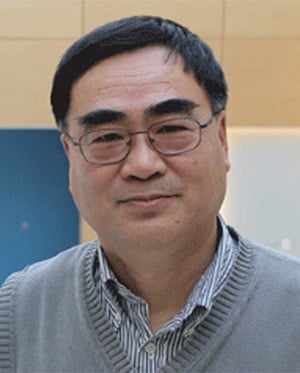
Chen Xu , PhD
Professor of Biochemistry & Molecular Biotechnology; Director of the Cryo-Electron Microscopy Core FacilityType: Primary
Areas of Research: Biophysics & Macromolecular Structures, Computational Biochemistry
Research Interest: The Xu lab is constantly researching ways to increase accessibility of Cryo-EM techniques.
Key Words: Cryo-electron Microscopy, Structural Biology
Research Tools: Cryo-Electron MicroscopyOffice Location: LRB 902 &
SA-106
Lab Location: SA-106
Phone: 774-455-4050
Lab Page
x
x
Relevant Blog Posts
-
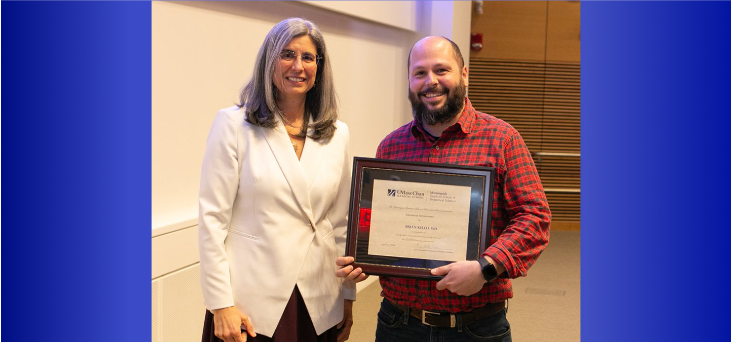 May 10, 2024Read more
May 10, 2024Read more -
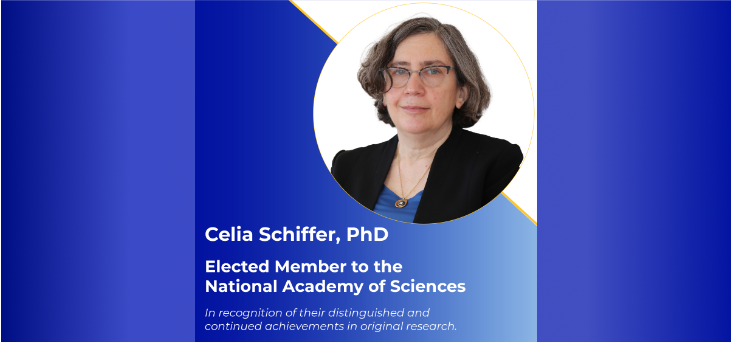 May 6, 2024
May 6, 2024Dr. Celia Schiffer elected to the National Academy of Sciences
Read more
Molecular illustrations on this webpage were generated by Leonora Martínez-Núñez, PhD.
